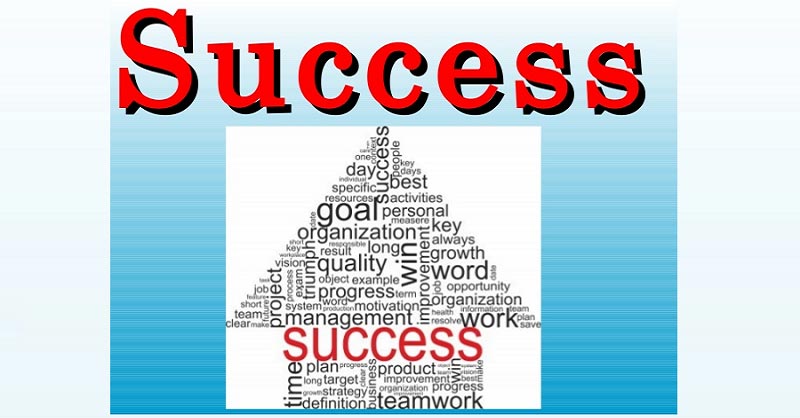
Balancing Intellectual and Emotional Skills: The Key to True Success
Many individuals who focus solely on academic and intellectual abilities often find it challenging to succeed or become easily established in society. Despite their sharp analytical skills, they tend to be limited and self-centered in their achievements. This raises a critical question for educators and parents: What elements should be integrated into our children's education to ensure their lives are well-organized and successful along with high academic achievements?
Contrast with Ordinary Individuals
Interestingly, a seemingly ordinary person can bring about significant change and contribute meaningfully to society. The difference lies in the ability to balance intellectual prowess with social and emotional skills, which are essential for real-world success.
Specialists vs. Skilled Managers
A professional expert in a single field may struggle, while a skilled manager in the same field thrives. Those with only educational qualifications are like single-dimensional specialists who lack the necessary skills for a balanced life. They might have sharp intellectual analysis capabilities but face struggles in the real world. This is where Social-Emotional Learning (SEL) comes into play.
Introduction to Social-Emotional Learning (SEL)
This article explores Social-Emotional Learning (SEL) as a fundamental aspect of education, providing insights for schools, teachers, and parents. SEL is the process through which individuals learn to understand and manage emotions, set and achieve positive goals, feel and show empathy for others, establish and maintain positive relationships, and make responsible decisions.
Historical Background of SEL
James Comer (Yale University): In the late 1960s, Comer introduced the concept of SEL within the School Development Program, emphasizing its necessity for academic success.
Howard Gardner (Harvard University): Proposed the theory of multiple intelligences in 1983, challenging the traditional notion of intelligence.
Daniel Goleman: Published "Emotional Intelligence" in 1995, further highlighting the importance of emotional and social skills.
These concepts have revolutionized the way we understand intelligence and success, underscoring the need for integrating various complementary aspects into education.
SEL Programs in Schools
Since 1987, Timothy Shriver and Roger P. Weissberg initiated SEL programs from grades one to twelve. Based on progressive educational philosophy, SEL aims to make education practical and establish life skills.
Core Dimensions of SEL
The Collaborative for Academic, Social, and Emotional Learning (CASEL) identifies five key dimensions of SEL:
1. Self-Awareness
Building a positive self-image through introspection.
- Example: Understanding personal emotions, frustrations, confidence, and courage.
Self-awareness is like looking into a mirror and seeing the true reflection of your emotions and thoughts. It involves recognizing your strengths and weaknesses and understanding how your feelings can influence your behavior.
2. Self-Management
Controlling impulses, self-discipline, and goal-setting.
- Example: Like a driver controlling a vehicle's speed and direction, students learn to manage themselves.
Self-management involves regulating your emotions, thoughts, and behaviors in different situations. This includes managing stress, controlling impulses, and motivating oneself to achieve personal and academic goals.
3. Social Awareness
Understanding the social environment, empathy, and respect for diversity.
- Example: An airplane landing with full awareness of its surroundings.
Social awareness involves the ability to take the perspective of and empathize with others, including those from diverse backgrounds and cultures. It also means understanding social and ethical norms for behavior.
4. Relationship Skills
Building and maintaining healthy relationships.
- Example: Like a coordinated dance, where every step and expression is synchronized.
Relationship skills are crucial for establishing and maintaining healthy and rewarding relationships with diverse individuals and groups. This includes clear communication, active listening, cooperation, resisting inappropriate social pressure, negotiating conflict constructively, and seeking and offering help when needed.
5. Responsible Decision-Making
Identifying problems, analyzing, solving, and accepting outcomes.
- Example: Strategic planning in a chess game to anticipate and respond to challenges.
Responsible decision-making involves making ethical, constructive choices about personal and social behavior. It requires considering the well-being of oneself and others, recognizing the consequences of various actions, and understanding how decisions affect personal goals.
Practical Application of SEL
Integrating SEL into education involves practical problem-solving, resilience, and fostering a positive perspective towards oneself and others. Let's look at an example of an SEL counseling session.
Example of an SEL Counseling Session
A third-grade student arrives at school upset. The teacher, understanding the student's psychological distress, schedules an SEL counseling session. The student is encouraged to express emotions and understand them through relatable activities. The teacher provides counseling in simple language, helping the student manage emotions and make appropriate decisions in future situations.
Impact of SEL on Students
Research confirms that SEL significantly influences students' academic and emotional development, social skills, and overall well-being. Students who receive SEL education are better equipped to handle daily challenges, establish positive relationships, and achieve academic success.
Conclusion
SEL is an integral part of a child's holistic development, combining academic, social, and emotional growth through structured educational processes. Progressive schools integrate SEL into their counseling programs and curricula, ensuring students develop essential life skills for a successful future.
Final Thoughts
Ignoring SEL in favor of purely academic and cognitive areas leads to challenges in adulthood, including family imbalance, relationship issues, and life skills deficiency. Emotional and social competencies are crucial for overcoming life's challenges and achieving balanced success. Integrating SEL into education provides students with the tools they need to navigate the complexities of life, ensuring they are well-rounded individuals capable of making positive contributions to society.
Life Skills Life




